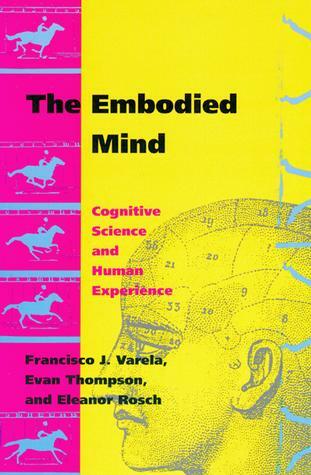The Impossibility of Having a Mindful Day
Posted in The Gnovis Blog
I think having a “mindful day” is more important and more impossible than ever before. When I look at my daily routines, I spot a billion things that counteract against my will to be mindful. Before ranting about these, I will first provide a definition of mindfulness.
Mindfulness is a Buddhist concept/practice. In The Emb odied Mind, Fransico Varela and co-authors define mindfulness as “…to experience what one’s mind is doing as it does it, to be present with one’s mind.” One definition I heard from someone was along the lines of “… a non-judgmental awareness of the immediate experience.” My definition is “Being present at the moment.”
odied Mind, Fransico Varela and co-authors define mindfulness as “…to experience what one’s mind is doing as it does it, to be present with one’s mind.” One definition I heard from someone was along the lines of “… a non-judgmental awareness of the immediate experience.” My definition is “Being present at the moment.”
My theory is that our constant use of technology pushes us to a mental state where we constantly experience a simulated reality, from the past, the future, or entirely hypothetical. This is a result of our constant connectedness with the ubiquitously present information/communication technologies (ICT). When we zoom out and reconsider our relation with technology we see that ICT are actually facilitators of experiencing which is not readily present in the immediate context. What ICT does not do is to facilitate contact with now
I do not think that this would be a problem if we evolved to live like this. However, the conditions we evolved necessitated a continuous awareness of what one is experiencing. There were too many dangers, which makes day dreaming a luxury. This evolutionary pressure also shaped how our brains work. Our brain is full of funny exploitations of simple neural mechanisms for complex tasks. Since the primary functions of our brains were to do things like navigation, searching for food and reproduction, systems facilitating these evolved first. Other more complex functions that came later, like language or counting apples, exploited the already existent systems. Therefore abstract, complex thinking is actually grounded in the sensorimotor system.
One of the radical claims made by embodied cognition researchers is that since all cognitive processes (including things like doing mathematics and composing a symphony) happen in the sensorimotor system, all cognition is sensorimotor simulation. What this means is that when you think about some hypothetical thing, like which movie to watch tonight, you actually simulate in your mind how it would feel to watch this or that movie. If it is mathematics you are thinking about, then you are doing some embodied simulation with mathematical concepts grounded in the sensorimotor system, which eventually acquire their meaning from metaphorical relations with physical objects.

While we certainly have the capacity to experience the present moment, the thing that makes us different from the remaining animal kingdom is our advanced capacity to simulate things—to experience hypothetical worlds. While this advanced ability to experience hypothetical worlds grants us with an array of cognitive skills, like language, mathematics and music, unmatched by any other animal, it also makes it very difficult for us to be mindful. We use the same system to think as we use to move, to see, to hear and ultimately to be aware.
This is the contradiction of the human evolution. Our advanced capacity to simulate makes us smarter, but less mindful, which decreases our connection with the immediate environment we are in. This is worsened by our use of ICT. I see more and more people every day in the campus, who are text messaging, talking on the phone, or listening to MP3 players while they are walking: An almost complete disconnection with ones’ immediate environment and with the self. This is further amplified with our use of computers.

Practically everything on a computer is a simulation. Our communication with a standard computer is limited to two gestures; clicking on keyboard buttons and moving a mouse. Nothing is physical; everything is a simulation. The computer takes advantage of metaphorical relations with common physical objects; files, folders, windows… The problem is that we may come to a point where new computer users may have never seen a physical folder in their lives. Then, how will they understand the folder metaphor?
Since our interaction with the ICT limits our real, physical, more mindful interactions with everyday objects, the metaphors that the ICT use to facilitate use of their interfaces will become meaningless. This is a problem that human computer interaction researchers need to overcome. Going back to our main topic, while computers, iPhones and other similar gadgets make it possible for us to be anywhere in the world any time, they actually close the doors of our perception to where we are in the present moment. The overall point I am trying to make is that, compared to the past, it is more difficult now than ever before to be mindful. Unfortunately it is something we need now more than ever.
P.S. This was my first blog entry for gnovis. As a matter of fact, this was my first blog entry except my uses of blogs for personal knowledge management purposes. I hope I got the concept right.
